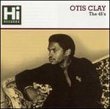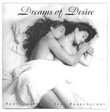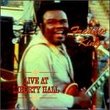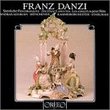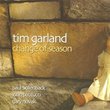| All Artists: Donald Byrd Title: Kofi Members Wishing: 4 Total Copies: 0 Label: Blue Note Original Release Date: 3/21/1995 Re-Release Date: 6/17/2008 Genres: Jazz, R&B Styles: Bebop, Funk Number of Discs: 1 SwapaCD Credits: 1 UPCs: 724383187522, 724383187515, 724383187522 |
Search - Donald Byrd :: Kofi
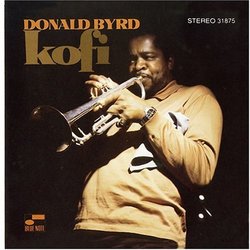 | Donald Byrd Kofi Genres: Jazz, R&B
Kofi & Fufu were recorded on December 16, 1969 at A&R Studios, New York City. Personnel: Donald Byrd (tp) William Campbell (tb) Lew tabakin (fl, ts) Frank Foster (ts) Duke Pearson (elp) Ron Carter (b) Bob Crenshaw ... more » |
Larger Image |
CD DetailsSynopsis
Amazon.com Kofi & Fufu were recorded on December 16, 1969 at A&R Studios, New York City. Personnel: Donald Byrd (tp) William Campbell (tb) Lew tabakin (fl, ts) Frank Foster (ts) Duke Pearson (elp) Ron Carter (b) Bob Crenshaw (elb) Airto (d) Perpetual Love, Elmina, & The Loud Minority were recorded on December 4th, 1970 at A&R Studios, New York City. Personnel: Donald Byrd (tp) Frank Foster (ts) Wally Richardson (g) Duke Pearson (elp) Ron Carter (b) Mickey Roker (d) Airto (perc) Dom Um Ramao (perc)This title is manufactured "on demand" when ordered from Amazon.com, using recordable media as authorized by the rights holder. Powered by CreateSpace, this on-demand program makes thousands of titles available that were previously unavailable. For reissued products, packaging may differ from original artwork. Amazon.com?s standard return policy will apply. Similar CDs
|
CD ReviewsCurrently one of my favourite pieces of music chrisdorrian@hotmail.com | London, England | 01/23/2000 (4 out of 5 stars) "This one didn't catch me at first, I couldn't understand it. But after travelling for eight months all I wanted to do when I got home was to play this CD. It has complex rhythms and melodies, a good album to keep you on the edge of your seat. Donald Byrd is excellent as are his co-musicians.I think if you like Miles Davis you will like this one." This is that deep inside your mind funk..It sneaks up on ya Daddy-o | Beatsville, USA | 11/04/2004 (4 out of 5 stars) "My man Ron Carter- what are you doin' to that bass on "Elmina"...Damn that's funky!! This is my favorite period (69'-70') of Mr. Donald Byrd with albums like: Ethiopian Knights, Electric Byrd, and this one- Kofi. Mickey Roker on drums, Ron Carter on bass and Duke Pearson on electric piano- with this rhythm section you know it's gonna be good! The songs are long and spacious usually with the groove tucked into the middle. Just another essential album in my ever growing jazzfunk collection. The goods!" ............................................................ leaf garrett | 07/01/2005 (5 out of 5 stars) "This album is some of the funkiest jazz I have ever heard. This album is to die for, the bass lines are superb, the flute playing in suave' and Byrd's timing is out of this world. Occasionally I have a few long night drives through the darkness and this album is absolutely perfect.... it makes one feel like a "mean sort of cool" and would be perfect for a good movie score. Insanely terrific."
|

 Track Listings (5) - Disc #1
Track Listings (5) - Disc #1